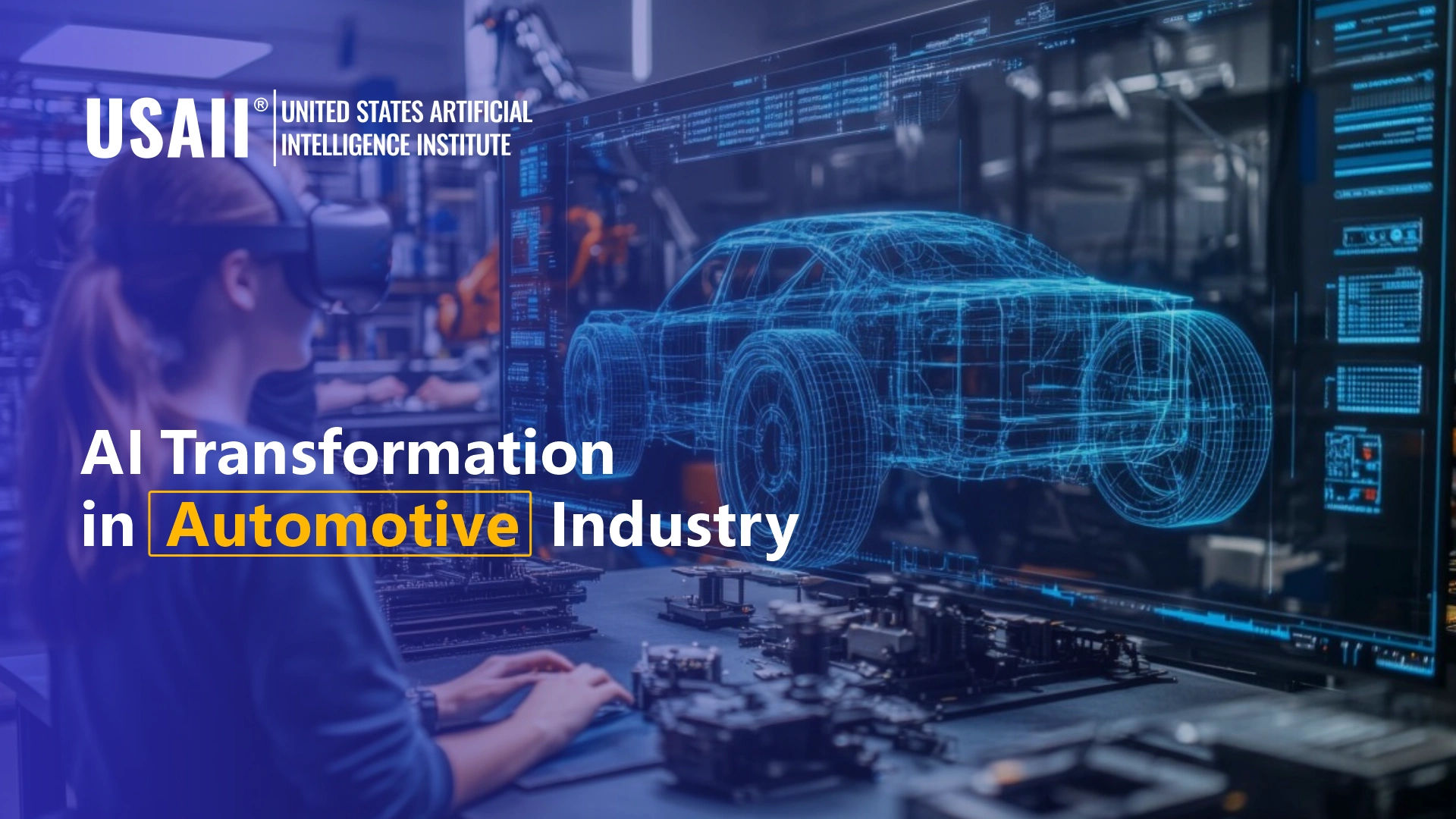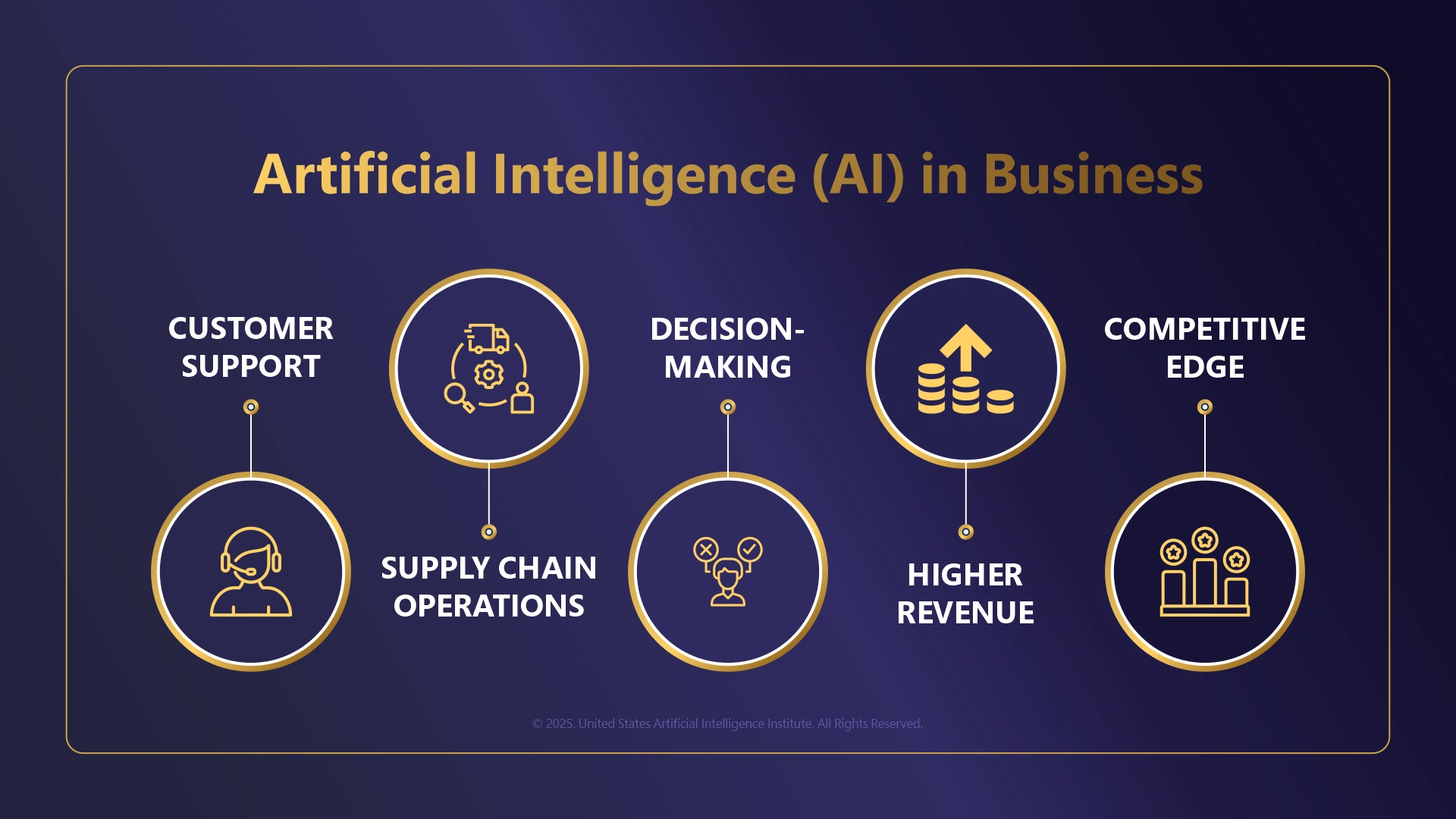
A company that welcomes and integrates artificial intelligence (AI) into its operations, goods, and services in order to drive innovation, efficiency, and expansion is said to be participating in the AI transformation (IBM, 2024). By utilizing a variety of AI models and other technologies, AI transformation simplifies organizational procedures and builds an agile, ever-evolving business.
In the car dealership business, chatbots with AI capabilities have grown to be essential for offering smooth and immediate client service. By utilizing cutting-edge machine learning algorithms, these chatbots communicate with consumers 24/7, promptly responding to their queries and offering tailored car recommendations. This guarantees improved consumer satisfaction and superior service. Drift and Intercom are well-known AI-powered chatbot applications for auto dealerships.
AI is also used for predictive analytics. Where in the case of auto dealerships, predictive analytics is important because it allows companies to use customer information to predict purchasing patterns and preferences. Dealerships are able to predict purchasing patterns by analyzing large volumes of customer information using systems like IBM Watson and RapidMiner, thereby rendering it simpler for businesses to create more targeted and successful marketing campaigns.
Predictive analytics is used in Alfardan company too in understanding customer behavior. Along with this, virtual assistance is also used in the company where integrating virtual assistants like Amazon Alexa and Google Assistant into dealership websites has boosted the browsing experiences for potential clients. Customers are guided through automobile features by these virtual assistants, which improves the engaging and educational experience. In addition to arranging test drives and requesting questions about particular vehicle characteristics, customers may communicate with the dealership's online platform in an additional engaging and personalized way.
I also learnt that that in business decision too AI has greatest potential which can be analyzed from the below Figure.

In the automobile industry, there is a larger scope for AI as by analyzing enormous quantities of data produced throughout the value chain, artificial intelligence (AI) helps manufacturers make better decisions. Data is used to find patterns, predict trends, and continuously enhance operational procedures in anything from car design to post-purchase experiences. AI enables manufacturers to anticipate future needs and respond swiftly to market shifts, ensuring a more competitive and adaptable strategy. AI is a driver for a more streamlined, stimulating, and personalized consumer experience that extends beyond simple efficiency enhancements (TTec, 2025). AI is a driving force that cuts beyond traditional lines, from the sacred corridors of dealerships to the production lines of producers. AI integration is not only an innovation advance for automakers and dealerships but also an imperative to improve the consumer experience. Dealerships may utilize all of the data they're gathering to deliver unmatched customer service by using AI-driven analytics to make sure every engagement is laced with customization, responsiveness, and a thorough understanding of each client's preferences (Costa, 2025). AI gives manufacturers the ability to develop cars that seamlessly meet evolving customer needs while prioritizing comfort, safety, and happiness. Automobile producers must invest in data analytics and data annotation since AI is only as effective as the data that informs it.
In terms of challenges and opportunities sensitive knowledge that needs additional safeguards is present in almost all of the data generated in the automotive sector. To ensure that the data is handled correctly, a good data partner will offer a range of security solutions and have strong safety standards at even the most basic level.
The possible advantages of AI in the automobile sector are enormous, though issues like data privacy, cybersecurity, and moral concerns must be resolved. The improvement of safety, effectiveness, and sustainability within mobility ecosystems is one of the primary benefits of AI in transportation. By streamlining procedures, improving decision-making, and opening up opportunities for new companies, artificial intelligence (AI) is finding use in a wide variety of sectors, including healthcare and finance (priority, 2024). AI has enormous disruptive potential, given that it gives companies the ability to innovate, become more productive, and obtain a competitive advantage. The adoption of AI is accompanied by a number of challenges, such as integrating AI with legacy systems, preserving data privacy, and reducing algorithmic biases. The complicated nature of implementing AI and the lack of skilled workers are frequent problems for organizations. It was also found that overlooking these problems can result in serious consequences. Organizations need to implement a proactive and intentionally done approach in order to minimize the hazards that accompany AI adoption and fully reap its benefits.
AI is expanding the boundaries of autonomous car technology's possibilities. It has the potential to completely change the perspective on transportation. Real-time decision- making, negotiating challenging road conditions and even interacting with other vehicles for improved traffic flow are all possible with AI-powered cars. Transportation is going to become safer and more effective as a result, and carbon emissions could decrease significantly.
The automobile sector is well-suited for a prosperous future as AI develops. Automakers are using AI technologies to produce smarter, safer, and better-performing cars that satisfy the evolving needs of consumers. It may be anticipated that many more developments in the sector continue to adopt AI, which could impact mobility in the future and totally change how one sees transportation. Auto dealerships can utilize AI to enhance customer satisfaction and boost sales. Chatbots with AI capabilities can help consumers select the right car for their requirements and price range, offering round-the-clock assistance (salesforce, 2024). AI is also able to analyze consumer information and preferences to provide customized advertisements and recommendations. Dealers may benefit from this by witnessing an increase in client loyalty and satisfaction. By anticipating demand and guaranteeing that popular merchandise is always accessible, AI can also be used to improve inventory management. AI can also help eliminate administrative duties, giving dealers the opportunity to concentrate on cultivating relationships with customers.
The auto industry can create and follow moral standards for AI use. These rules ought to specify the responsibilities of producers, operators, and authorities in guaranteeing the security and ethical use of these automobiles. Concerns like accountability and responsibility in the case of accidents should also be covered.
Vehicles have to undergo stringent testing and be subject to government regulation before they can become available to the general public. By doing this, any potential ethical problems will be resolved before the automobiles are put on the road, and the technology will be safer and more dependable.
Conclusion
AI transformation enhances customer experience, efficiency, and imagination in enterprises, particularly in the automobile industry. Chatbots with AI capabilities, like Drift and Intercom, offer immediate assistance to customers and increase client satisfaction through customized exchanges. Targeted marketing is made feasible by predictive analytics, which lets dealerships anticipate buying trends with the use of platforms like IBM Watson. By assisting customers navigate features and answering inquiries, virtual assistants increase user engagement on dealership websites. The possibilities of AI are additionally applicable to manufacturing decision-making, where data analysis improves productivity and adaptability to changing market circumstances. Nonetheless, issues like cybersecurity, data privacy, and legacy system connectivity need to be resolved. AI has the potential to broaden the automotive sector, resulting in safer, smarter cars and enhanced customer service. In order to ensure responsibility and safety in autonomous automobiles, moral standards for AI use are crucial. All things taken into account, artificial intelligence (AI) is poised to transform transportation, increasing sustainability and efficiency while necessitating cautious risk management.
Follow us: